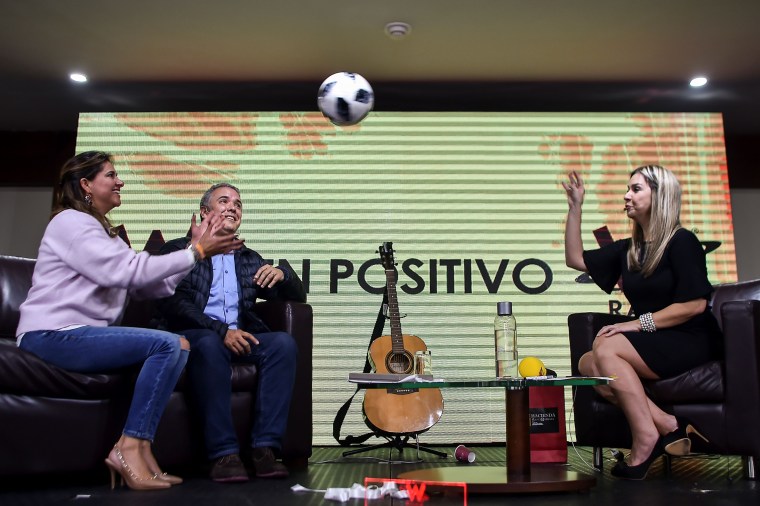Bogotá, October 29, 2020 – The Committee to Protect Journalists today condemned a Colombian appellate court’s decision ordering journalist Vicky Dávila Hoyos and media outlet RCN to pay damages for reports broadcast in 2014 on alleged police corruption.
On October 15, a Bogotá appellate court ordered Dávila, one of Colombia’s best-known journalists, and the private RCN media company to pay more than $43,000 in damages to the family of a police colonel who was removed from his post after Dávila reported on allegations that he was corrupt, according to news reports.
The case stems from Dávila’s May 6 and 14, 2014, reports for the Bogotá radio station La FM, owned by RCN, about Jorge Hilario Estupiñan, who was then the police commander of Casanare department in eastern Colombia.
Dávila, who at the time was a show host and the top news editor at La FM, played an audio recording in which Estupiñan appeared to use his influence to seek a government contract for one of his friends to provide cots and pillows for police barracks. Dávila also interviewed the inspector general of the Colombian police and asked him why no disciplinary action, such as suspending Estupiñan, had been taken even though police investigators had possessed the audio for a month, according to news reports. Estupiñan denied the allegations in an interview with Dávila, the reports said.
After Dávila’s reports, Estupiñan was temporarily suspended and later fired for “inefficiency,” but a subsequent police investigation cleared him of corruption, according to news reports. Estupiñan then filed a civil defamation lawsuit against RCN and Dávila, who now directs the online TV station of the Bogotá newsweekly Semana.
In a telephone interview, Dávila told CPJ that a lower court in August found her and RCN not guilty. But on October 15, an appellate court judge declared them guilty of damaging “the good name” of Estupiñan and his family, and ordered Dávila and RCN to correct their reporting and pay 165 million pesos, or $43,421.
In a 35-page ruling, the court blamed Dávila for the firing of Estupiñan and described her as showing “a lack of professional diligence” by using sarcasm and irony in her reporting, according to news reports. The court accused Dávila of pressuring the police to discipline Estupiñan, conduct which the court said had “blurred the goals and purposes of journalism,” and that, without having the authority to do so, she had acted like a judge, by insinuating he was guilty before a competent body made a decision in his case, the reports said.
“The damages imposed on Vicky Dávila and RCN by this troubling ruling could have a chilling effect on reporting on sensitive issues, which is paramount to any informed society,” said CPJ South and Central America Program Coordinator Natalie Southwick in New York. “By suggesting that journalists cannot report on allegations of wrongdoing before an authority has made a decision, this ruling misinterprets the pivotal role that the press plays in keeping societies informed and stimulating public debate, and establishes an unacceptable limit on media freedom.”
CPJ called the Colombian Justice Ministry but there was no answer.
Dávila told CPJ that it was the police, not herself, who decided to fire Estupiñan and said the court ruling would severely restrict the work of investigative journalists by forcing them to wait for a legal decision before reporting on corruption allegations.
The ruling “would eliminate one of the principles of investigative journalism in which you sound the alarm and publish when you receive an accusation,” Dávila told CPJ.
As a final legal recourse, Dávila said she is filing a constitutional writ of appeal (tutela).
In a statement, the Bogotá-based Foundation for Press Freedom called the ruling “a setback for freedom of expression and a dangerous precedent.”
In an email, Javier de Jesús Márquez, legal counsel for RCN, told CPJ that RCN would use all legal methods available to overturn the ruling, including a tutela. He also said the decision violates fundamental constitutional rights and that it would cause Colombian journalism to lose its independence and legal protections.
